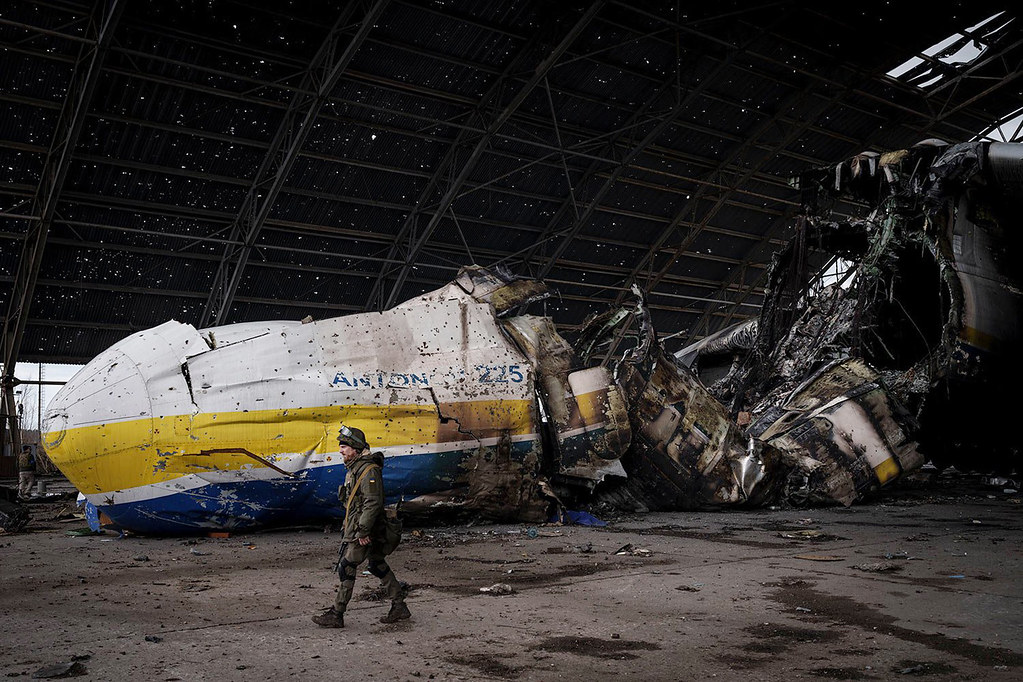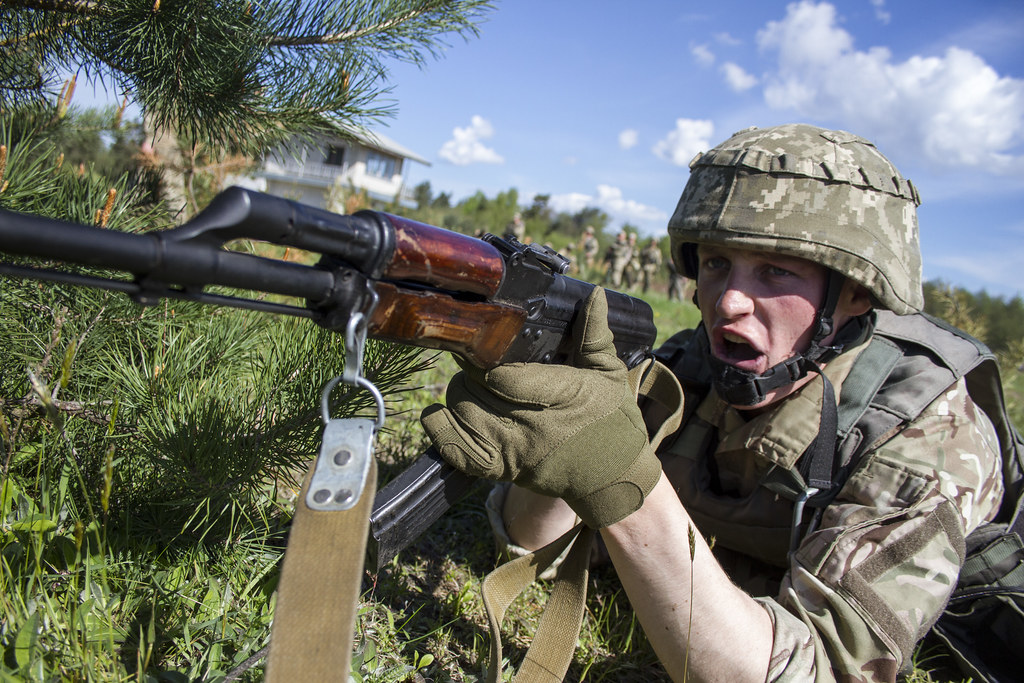Bakhmut, a once-thriving city in eastern Ukraine, has been reduced to ruins after months of heavy shelling by Russian forces.
We interviewed a Ukrainian military expert, serviceman, and analyst to gather insights on the potential implications of the capture of Bakhmut.
The city, which had a pre-war population of about 70,000, is now largely deserted. Buildings have been reduced to rubble, and the streets are littered with debris.
Ukrainian President Volodymyr Zelenskyy has compared Bakhmut to Hiroshima after the atomic bombing in 1945.
“Nothing alive left,” Zelenskyy said in a video address on Sunday. “All of the buildings have been ruined.”
Hours earlier, Yevgeny Prigozhin, head of the Wagner mercenary group, announced that Russian forces had taken control of Bakhmut. However, Ukrainian officials have denied this claim, saying that they still control parts of the city.
If confirmed, Bakhmut’s capture would be a significant victory for Russia. The city is located on a key strategic route, and its fall would open up the way for Russian forces to advance further into eastern Ukraine.
The destruction of Bakhmut is a stark reminder of the human cost of the war in Ukraine. Millions of people have been displaced from their homes, and thousands have been killed. The war has also caused a humanitarian crisis, with millions of people in need of food, water, and shelter.
The international community has condemned Russia’s invasion of Ukraine, and imposed a series of sanctions on the country. However, the war shows no signs of abating, and it is unclear when it will end.
The city, located in eastern Ukraine, was seized by Wagner, a Russian mercenary group, after months of heavy fighting. However, the victory came at a high cost for Russia.
Wagner’s forces were largely made up of untrained inmates recruited from Russian prisons. They were poorly equipped and led, and they suffered heavy casualties in their slow, street-by-street advance on Bakhmut.
In the end, Wagner was able to capture the city only because of the overwhelming use of artillery and air strikes. However, the city is now in ruins, and Russia’s victory has come at a significant cost in terms of both manpower and equipment.
The capture of Bakhmut is a symbolic victory for Russia, but it is unlikely to have any significant strategic impact on the war. The city is located on a key strategic route, but it is not a major population center. And while its capture will allow Russia to open up a new front in the war, it is unlikely to change the course of the conflict.
The real significance of the battle for Bakhmut is that it has shown the limits of Russia’s military power. The Russian army has been unable to achieve its objectives in Ukraine, and it has suffered heavy casualties in the process. The capture of Bakhmut is a reminder that Russia is not invincible, and that it may not be able to achieve its goals in the war.
The battle for Bakhmut is also a reminder of the human cost of war. Thousands of people have been killed or injured in the fighting, and millions more have been displaced from their homes. The war has caused a humanitarian crisis in Ukraine, and it is unclear when it will end.
They desire my return
Some soldiers are expressing doubts about their commanders, who they say are forcing them to return to the fighting even though they are not fit for duty.
One soldier, who asked to remain anonymous, said he was wounded in an explosion and now has double vision and five contusions. He said he was sent back to the front lines after only a few days of medical treatment.

“Do they have to finish him off there?” his wife asked. “Why can’t they find someone younger, someone who hasn’t been wounded that many times?”
The takeover of Bakhmut by Russian forces is a major setback for Ukraine. The city is located on a key strategic route, and its fall could open up the way for Russian forces to advance further into eastern Ukraine.
The loss of Bakhmut could also delay a much-needed counteroffensive by Ukrainian forces. The counterattack was apparently aimed at saving the remaining Ukrainian servicemen, but it may have come too late.

The delay in the counteroffensive is also due to the arrival of new Western weaponry, especially advanced German-made Leopard A1 tanks. Ukrainian forces will need time to receive and test these tanks before they can launch a new offensive.
The delay in the counteroffensive could have a devastating impact on Ukraine’s economy. The country’s economy shrank by almost a third last year and has barely started recovering. The war is also preventing millions of refugees from returning home.
If the war continues for years, it could have a devastating impact on Ukraine’s economy and its ability to rebuild. Western governments and millions of refugees are waiting for the war to end so they can pour aid into Ukraine and help the country recover.
The decision of whether to return to the front lines or desert is a difficult one for many Ukrainian soldiers. They are facing a war that is taking a heavy toll on their country and their lives.
Kremlin celebrates with joy
The Russian government is trying to spin the takeover of Bakhmut as a major victory, but even some of its own supporters are not buying it.
The Kremlin has released a statement promising state awards to “all those who distinguished themselves” in the battle for Bakhmut, and pro-war Russians have been competing to praise the “triumph.”
However, some figures on Moscow’s side who dare contradict the Kremlin’s viewpoint do not consider Bakhmut’s takeover as a major event.
“The efforts wasted on Bakhmut’s takeover are incalculable,” Aleksandr Khodarovsky, a commander in the separatist-controlled “People’s Republic of Donetsk” wrote on Telegram on Sunday. “Bakhmut is no Berlin, and its fall doesn’t signify the war’s end.”
Another rebel warlord echoed Romanenko’s words about Russia’s “Pyrrhic” victory.
“It wasn’t even approximately worth the forces and funds spent on it,” Igor Girkin, a former defence minister in separatist-occupied Donetsk, said in a Telegram post.
The Kremlin’s efforts to spin Bakhmut’s takeover as a victory are likely to be met with skepticism by many Russians. The battle for the city has been long and bloody, and it is clear that Russia has suffered heavy losses. The fall of Bakhmut does not mean that the war is over, and it is likely that Russia will continue to face stiff resistance from Ukrainian forces.
SOURCE: AL JAZEERA


